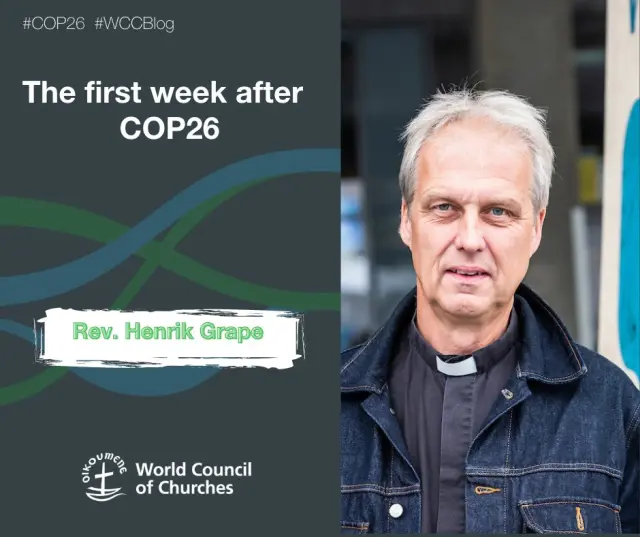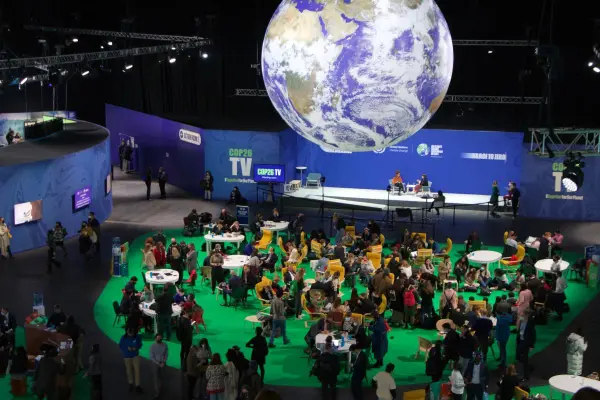Here, the Rev. Henrik Grape of the UNFCCC Interfaith Liaison Committe gives a short reflection after COP26.
Finally one day after the official ending of the meeting on overtime, we have a text. The Glasgow Climate Pact. You may read the text in different ways.
One is to say: This is not so bad. Some improvement in the text when you find a line on phase down fossil fuel. Loss and damage are in the text; human rights and indigenous rights are in the text. The pledges from the members of the Paris Agreement are a bit better and 1.5 is still in reach. And the Article 6 part on monitoring and counting seems to be solved.
Another position is to say that this is a scandal! The text on fossil fuels and subsidies is so weak that it means nearly nothing. Loss and damage are just words with no content about how to finance and how to implement. Human rights and indigenous peoples’ rights are there just to keep these groups happy. The pledges in the NDCs (National Determined Commitments) are not close to keep the temperature rise under even 2 degrees Celsius.
Not to mention the scandalous treatment of the 100 billion USD a year to adaptation for developing countries. Decided in 2009 to be operative in 2020 and now it might be delayed until 2023!
Being to COPs for many years now I know that there will be headlines saying that this is a big failure, and we are heading to a climate chaos. And there will be headlines from others saying that it was a huge success. And COP 26 is no exception.
Was it a failure or a step forward? (Success is not really an option.)
The truth is not somewhere in between. COPs are generally a failure in delivering on climate action. We still haven’t seen the curb of emissions. CO2 emissions are still rising. We still don’t see that the parties of United Nations Framework Convention on Climate Change (UNFCCC) take their decisions in line with science. And the finance for those most vulnerable and without resources to cope with climate change are simply not there.
On the bright side we still have a Paris Agreement as a tool to ramp up ambitions when it comes to NDCs. It is good that the NDCs will be reviewed every year now and not every fifth year.
It is not bad that we still have an international process that aims for lower emissions and finance for adaptation.
Still, the world is moving too slow. No, that is not right to say. The rich of the world are moving far too slow. The higher the income, the bigger the impact. The ecological and climate footprint of the rich is often hidden in the debate. This is where the change must come first. A carbon intensive lifestyle and a carbon intensive society must transform—and do it now.
A climate justice principle must address both the ones who are causing the climate disruptions and those who are most vulnerable and without means to adapt to climate change. Or even worse, the ones who experience the losses and damages caused by climate change.
People of faith was visible at the streets of Glasgow during COP. Faith-based organizations were inside the Blue Zone of COP where the negotiations were held. We demanded climate justice and a just transition. At the start of COP26 we met in an interfaith dialogue from which a call came out and was delivered to the secretariat of UNFCCC. This message reads:
”As people of faith, we believe that we humans are called to take care of our neighbors and of the Earth. We together envision a planet that secures good health, dignified livelihoods, and a future for all living beings including coming generations. Though we represent diverse faith traditions, we are united in calling upon the COP26 to act now on the climate emergency before it is too late.”

As people of faith, we believe that we humans are called to take care of our neighbours and of the Earth
Source
Image Source
Tags: after COP26 — a short reflection


